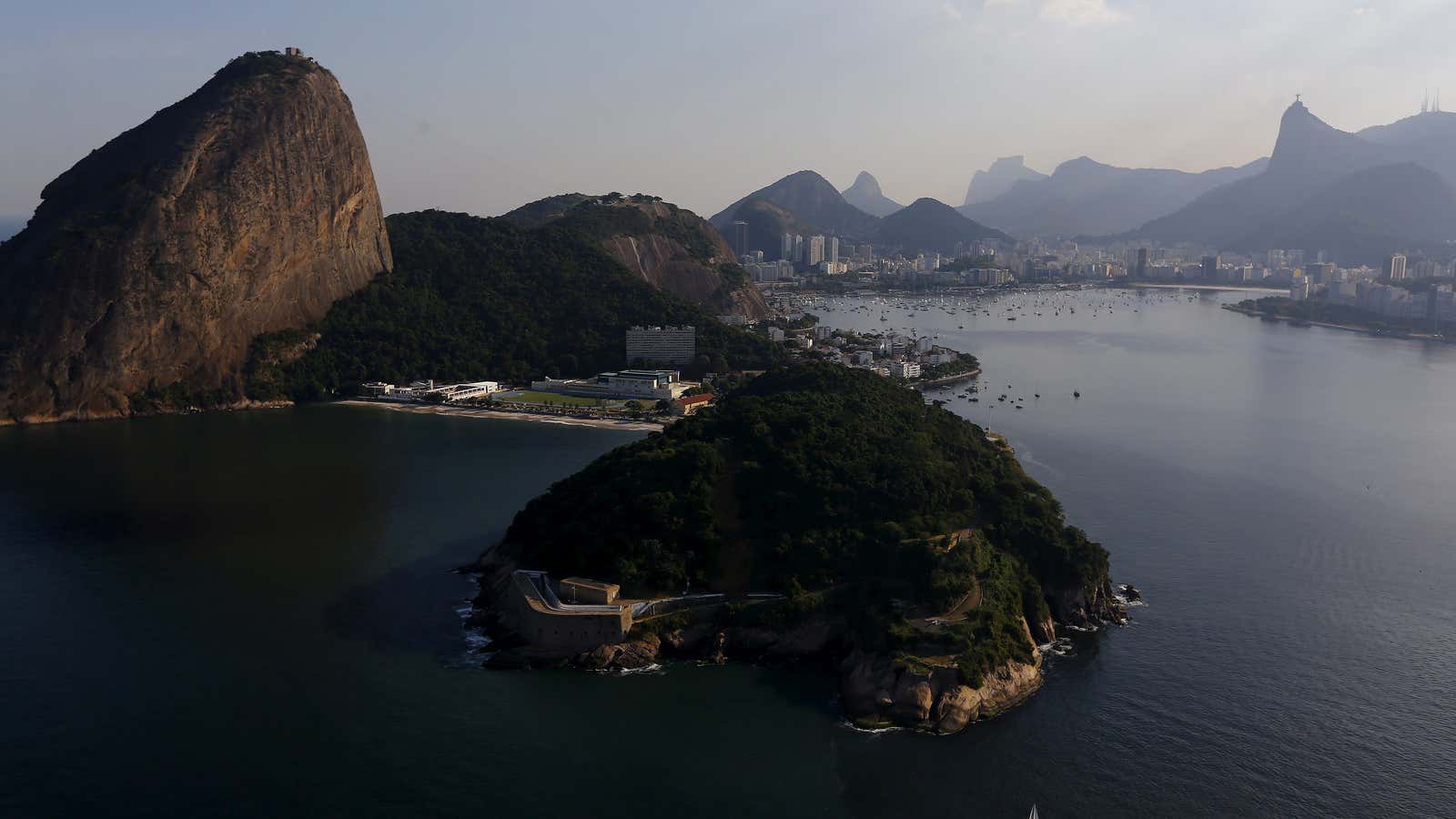Athletes competing in the 2016 Rio Olympics might be able to avoid swallowing Guanabara Bay’s fetid water, as they have been advised. But there’s no getting around the city’s dirty air.
An air analysis by Reuters and Brazilian researchers from the University of São Paulo found high levels of fine particulate matter—PM2.5. The highest levels of this dangerous pollution were recorded at the Olympic stadium, which hit a peak of 65 PM2.5 micrograms per cubic meter of air volume during an hour-long test. (The WHO’s recommended limit, based on a 24-hour mean, is 25 micrograms per cubic meter.)
That’s going to take a toll on athletes’ performance. A study by University of Massachusetts Amherst professor Jamie Mullins found that increases in particulate matter hurt outcomes in a significant way, both statistically and competitively.
Rio’s environmental agency has downplayed the results of the independent test, telling Reuters that pollution can’t be measured in PMs alone. It also declined to share data on levels of larger particulate matter for the past couple of years. But published numbers for previous years showed that, despite promises to clean up ahead of the Olympics, Brazilian officials improved little years after winning its 2009 bid to host the games.
From 2010 to 2014, Rio averaged an annual level of 52 micrograms of coarser particulate matter (PM10) per cubic meter of air, reports Reuters. That’s more than twice the WHO’s recommended limit of 20 micrograms/cubic meter. (The organization notes that it has not identified any threshold low enough to not damage health.)
If those pollutions remain the same today, they would put Rio in second place for worst pollution ever by an Olympics host city. Beijing, which held the summer Olympics in 2008, gets the top honor, according to a 2009 study published in the journal Environmental Science and Technology.
In Rio, some 5,400 people died from air pollution in 2014, exceeding the city’s 3,117 murder victims last year, University of Sao Paulo pathologist Paulo Saldiva told Reuters.
